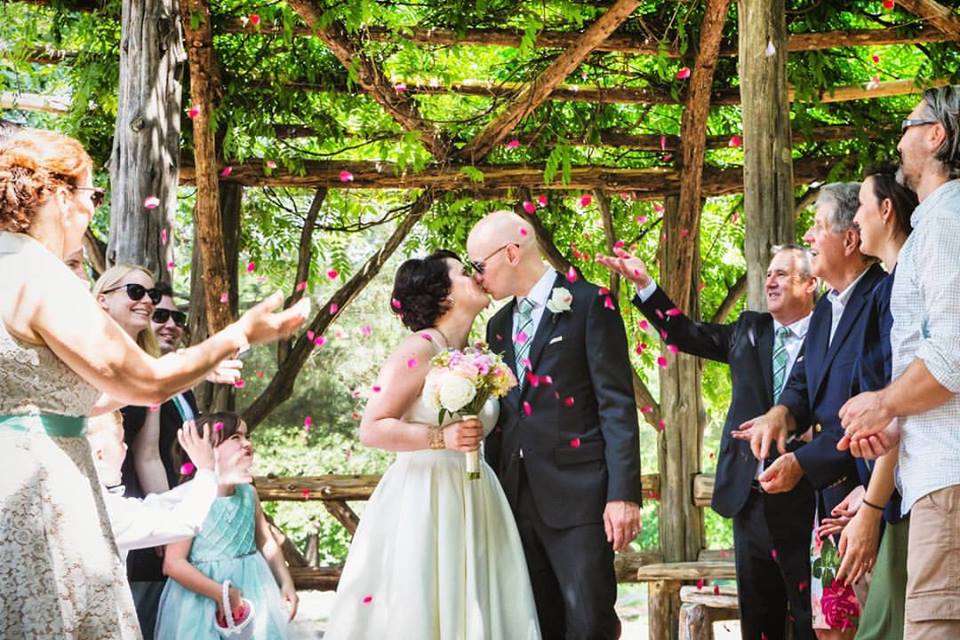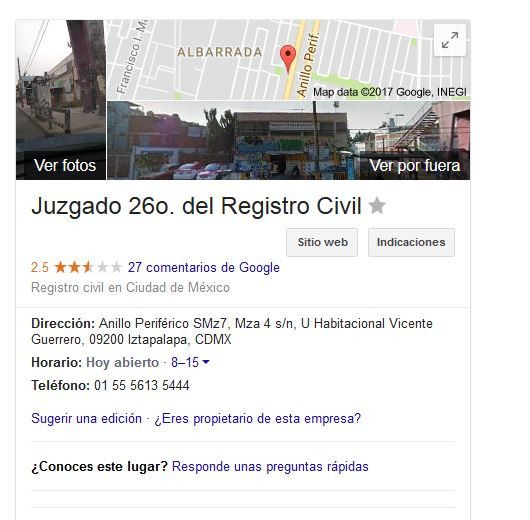Find The Perfect Judge For Your Civil Wedding Near You
So, you're tying the knot and want to keep things simple, elegant, and meaningful with a civil wedding. But here's the thing: finding the right juez para boda civil cerca de mi or judge for your civil wedding near you can be a bit overwhelming if you're not sure where to start. Civil weddings are all about creating a personal, legal ceremony that reflects who you are as a couple without the traditional religious aspects. It’s your day, and you deserve to make it special in every way possible.
Imagine this: you’ve found the perfect venue, the guest list is all set, and now you just need that final piece of the puzzle – someone to officiate your ceremony. A civil wedding judge isn’t just a person who signs papers; they’re the one who brings your love story to life through meaningful words and a personalized touch. So, how do you find the best judge for your big day? Stick around, because we’ve got all the answers you need.
From understanding the legal requirements to discovering local judges who specialize in civil weddings, this guide is designed to help you every step of the way. We’ll cover everything you need to know, from what to look for in a judge to how to prepare for your ceremony. Whether you’re planning a small, intimate gathering or a larger celebration, having the right judge can make all the difference. Let’s dive in!
Read also:Uncovering The Hidden Gems Of The Bin Store Phoenix
Table of Contents
- What is a Civil Wedding Judge?
- Why Choose a Civil Wedding?
- Finding a Local Judge Near You
- Legal Requirements for Civil Weddings
- Types of Civil Judges
- Tips for Selecting the Right Judge
- How to Prepare for Your Ceremony
- Common Mistakes to Avoid
- Costs and Budgeting
- Final Thoughts
What is a Civil Wedding Judge?
Alright, let’s break it down. A civil wedding judge, also known as an officiant, is a legal authority who performs your wedding ceremony and ensures everything is legit under the law. They’re like the ringmaster of your love circus, but way more professional. Unlike religious ceremonies, civil weddings focus on the legal aspects and personal touches that make your day unique. Your judge could be a local justice of the peace, a notary public, or even a friend or family member who’s been ordained for the occasion.
Here’s the kicker: civil wedding judges aren’t just there to sign papers. They’re there to create a meaningful experience for you and your guests. They can tailor the ceremony to fit your personalities, include readings, vows, and even funny stories about how you met. It’s all about making your day special while keeping it legal. So, if you’re looking for someone who can handle both the emotional and technical sides of your wedding, a civil judge is your go-to person.
What Qualifications Do Civil Judges Have?
Now, here’s the deal: not everyone can just show up and declare you married. Civil judges need specific qualifications, depending on where you live. In most places, they must be authorized by the state or county to officiate weddings. This could mean they’re a justice of the peace, a city clerk, or someone with a valid ordination from a recognized organization. Some judges even go the extra mile by getting certified in conflict resolution or public speaking to ensure your ceremony runs smoothly.
Pro tip: Always check the judge’s credentials before booking them. You don’t want any surprises on your big day, like realizing they don’t have the legal authority to marry you. Trust me, that’s not a plot twist anyone wants.
Why Choose a Civil Wedding?
So, why are more couples opting for civil weddings these days? Well, it’s all about flexibility, personalization, and keeping things real. Civil weddings allow you to design a ceremony that truly reflects who you are as a couple. No rigid traditions, no pressure to follow a script – just you, your partner, and your love story. Plus, they’re often more affordable than traditional religious ceremonies, which is always a win.
Here are a few reasons why civil weddings are becoming the go-to choice for modern couples:
Read also:Big Easy Bar Amp Grill A Southern Delight You Canrsquot Resist
- Personalization: Create your own vows, choose your own readings, and even incorporate cultural elements that mean something to you.
- Legal Recognition: A civil wedding is fully recognized by the law, so you don’t have to worry about any paperwork issues later on.
- Venue Flexibility: You can have your ceremony anywhere – at home, on the beach, or even in a park. As long as the judge is present and the legal requirements are met, you’re good to go.
- No Religious Restrictions: If you’re not religious or come from different faiths, a civil wedding allows you to celebrate your love without any religious constraints.
Finding a Local Judge Near You
Okay, let’s talk logistics. How do you find a judge for your civil wedding near you? It’s easier than you think, especially with the help of technology. Start by searching online using keywords like “judge for civil wedding near me” or “civil wedding officiant in [your city].” You’ll be surprised at how many options pop up. From local courts to professional officiants, there’s no shortage of qualified judges ready to help you tie the knot.
Where to Look for Judges
Here are some places to start your search:
- Local Courts: Many cities have justices of the peace or city clerks who can officiate weddings. They’re usually affordable and come with the official stamp of approval.
- Online Platforms: Websites like WeddingWire and The Knot have directories of professional officiants who specialize in civil weddings. You can read reviews, compare prices, and even book them directly.
- Community Recommendations: Ask around! Your friends, family, or local wedding planners might know of a great judge who’s perfect for your ceremony.
- Ordained Friends or Family: If you have a friend or family member who’s willing to officiate your wedding, they can get ordained online through a recognized organization. Just make sure they follow the legal requirements in your area.
Legal Requirements for Civil Weddings
Before you start planning your civil wedding, it’s important to understand the legal requirements. Every state or country has its own rules, so make sure you’re familiar with what’s expected. Generally, you’ll need a marriage license, which you can obtain from your local county clerk’s office. Some places require a waiting period between obtaining the license and getting married, so plan accordingly.
Here’s a quick checklist of legal requirements:
- Marriage license from your local county clerk
- Two witnesses present at the ceremony
- A licensed officiant to perform the ceremony
- Completed and signed marriage certificate
Pro tip: Double-check the specific requirements in your area to avoid any last-minute hiccups. You don’t want to get to the altar only to realize you’re missing a crucial document.
Types of Civil Judges
Not all civil judges are created equal. Depending on your preferences and budget, you might choose a different type of officiant for your wedding. Here are some common types of civil judges:
- Justice of the Peace: These are government officials who can legally perform weddings. They’re usually affordable and straightforward, but might not offer much in terms of personalization.
- Notary Public: Some notaries are authorized to officiate weddings, especially in certain states. They’re great for couples looking for a quick, no-frills ceremony.
- Professional Officiants: These are experienced wedding professionals who specialize in creating personalized ceremonies. They often offer additional services like vow writing and rehearsal coordination.
- Ordained Individuals: If you want a friend or family member to officiate your wedding, they can get ordained online through a recognized organization like the Universal Life Church.
Which Type of Judge is Right for You?
Choosing the right type of judge depends on your priorities. If you’re on a tight budget and just want a legal ceremony, a justice of the peace or notary public might be the way to go. But if you’re looking for a more personalized experience with all the bells and whistles, a professional officiant or ordained friend might be a better fit.
Tips for Selecting the Right Judge
Picking the perfect judge for your civil wedding is crucial. You want someone who understands your vision, connects with you as a couple, and knows how to handle any unexpected hiccups. Here are some tips to help you make the right choice:
- Interview Potential Judges: Don’t be afraid to ask questions! Find out about their experience, style, and availability. You want someone who’s a good match for your personalities.
- Check Reviews and References: Look for feedback from past clients to gauge the judge’s reliability and professionalism.
- Discuss Your Vision: Share your ideas for the ceremony and see how the judge responds. You want someone who’s open to your input and willing to collaborate.
- Confirm Legal Authority: Make sure the judge is authorized to officiate weddings in your area. You don’t want any legal issues down the line.
Red Flags to Watch Out For
While most judges are professional and trustworthy, there are a few red flags to watch out for:
- Lack of experience or unclear credentials
- Unwillingness to customize the ceremony
- Unclear pricing or hidden fees
- Poor communication or unresponsiveness
How to Prepare for Your Ceremony
Once you’ve found the perfect judge, it’s time to start preparing for your big day. Here’s a step-by-step guide to help you get ready:
- Choose Your Vows: Write your own vows or select meaningful readings that reflect your relationship.
- Plan the Ceremony Flow: Work with your judge to create a timeline for the ceremony, including any special moments or traditions you want to include.
- Arrange for Witnesses: Make sure you have two witnesses present at the ceremony to sign the marriage certificate.
- Practice Your Speeches: If you’re including speeches or toasts, practice them beforehand to ensure they flow smoothly.
Creating a Personalized Ceremony
One of the best things about civil weddings is the ability to personalize every aspect of the ceremony. Work with your judge to incorporate elements that are meaningful to you and your partner. Whether it’s a special song, a cultural tradition, or a heartfelt story about how you met, these details will make your day truly unforgettable.
Common Mistakes to Avoid
Let’s talk about some common mistakes couples make when planning a civil wedding. By avoiding these pitfalls, you can ensure your day goes off without a hitch:
- Not Checking Legal Requirements: Make sure you understand the legal process and have all the necessary documents in place.
- Underestimating the Judge’s Role: Don’t treat the judge as an afterthought. They’re an integral part of your ceremony, so choose wisely.
- Overlooking Personalization: A civil wedding is your chance to make the ceremony your own. Don’t be afraid to get creative and add your own touches.
- Forgetting the Witnesses: Two witnesses are required for the marriage certificate to be valid. Make sure they’re present and ready to sign.
Costs and Budgeting
So, how


